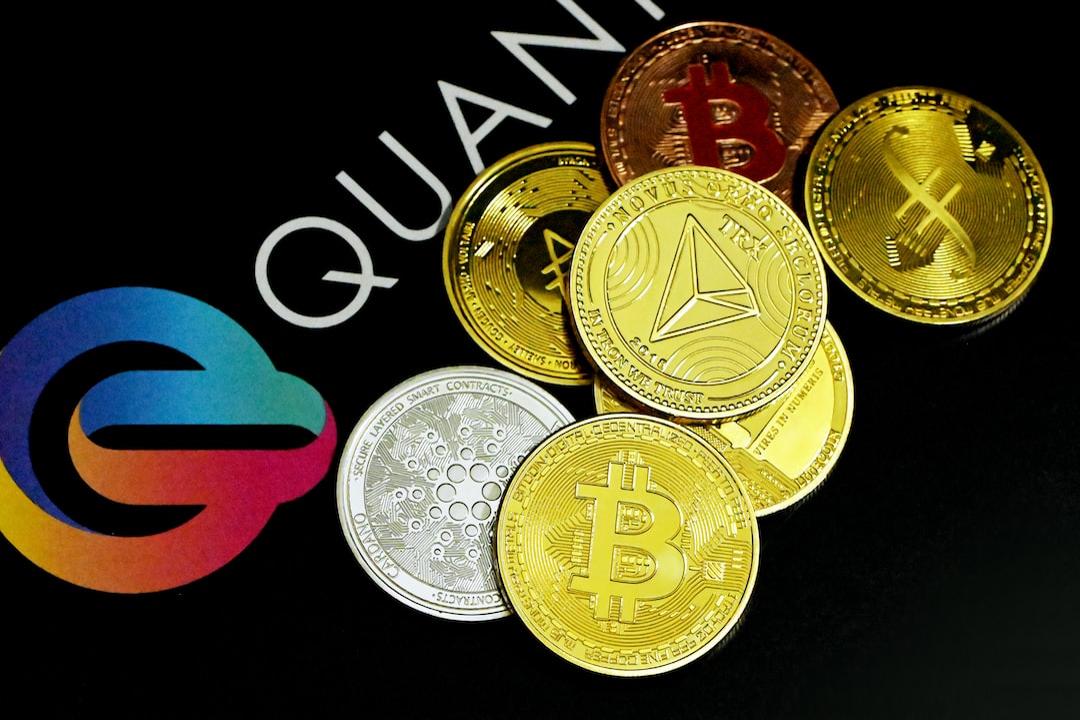On April 10, 2024, Uniswap Labs received a Wells Notice from the enforcement division of the U.S. Securities and Exchange Commission (SEC), informing them of potential regulatory enforcement actions, including litigation, against Uniswap Labs.
Uniswap Labs is the creator of the decentralized trading protocol, Uniswap Protocol. Since its launch five and a half years ago, it has facilitated over $2 trillion in trading volume, dominating the decentralized exchange market with a 55.5% share of total trading volume. It is considered a leader in the Crypto and DeFi markets.
The SEC’s actions are seen as a direct challenge to decentralized DeFi projects and will have a significant impact on the Crypto market. While we have seen a strong reaction from $UNI, what we see more is market unity.
This article will examine Uniswap Labs’ response to the SEC and its relatively compliant governance structure to understand why it is said that the SEC has initiated a lawsuit that it cannot win.
1. What is a Wells Notice?
First, it is important to clarify that a Wells Notice is not a formal lawsuit or regulatory enforcement document, but rather a formal warning or notification that the SEC is taking enforcement actions against a suspicious project.
Furthermore, the Wells Notice does not specify the specific reasons for the regulatory enforcement, putting Uniswap Labs in a defensive position to prove its innocence comprehensively.
The Wells Notice process is as follows: 1. After an internal investigation by the SEC into a suspicious company (whether it violates securities laws), a recommendation is made to take action against the company. 2. After receiving the Wells Notice, the company has a 30-day window to refute the allegations and present arguments to prove its innocence. 3. The SEC then evaluates and decides whether to proceed with regulatory enforcement.
One of the most well-known recent cases is the SEC vs. Ripple case. Ripple received a Wells Notice from the SEC in December 2020, leading to its delisting from Coinbase. Despite successfully arguing that it was not informed that XRP would be considered a security, the three-year legal process took a toll on the company’s reputation.
2. How does Uniswap Labs prove its innocence?

Let’s look at the article released by Uniswap Labs titled “Fighting for DeFi”:
Considering the SEC’s continuous regulatory enforcement against the most compliant and law-abiding market participants (Coinbase, Uniswap), as well as its unwillingness to provide a clear regulatory path for the past six years, this action seems more like a political demand (combined with recent criticism of DeFi by lawmakers).
Uniswap Labs, a U.S.-based company, created the Uniswap Protocol, bringing unprecedented innovation to the market. These innovations, based on open-source code, allow users to directly participate in market transactions while self-custodying their assets, without the need for any intermediaries. Uniswap Labs believes that its product is not only legal but also transformative. By establishing transparent and verifiable markets with fewer gatekeepers, it empowers people around the world to participate in the global economy affordably and conveniently.
If the SEC continues to protect opaque traditional financial systems and attack innovations and transparent technologies that can create opportunities and reduce costs for Americans, then Uniswap Labs has to fight against government agencies to protect innovation and economic freedom.
Regardless of what the SEC decides, the law is clear on the following points:
1. SEC’s regulatory enforcement lacks congressional authorization – SEC only has jurisdiction over “securities”
The SEC Chairman has previously made it clear to Congress that determining whether crypto assets are “securities” requires legislative confirmation.
In the Risley vs. Uniswap Labs case, the judge stated that transactions on Uniswap are not subject to securities laws (neutral and no licensing required), emphasizing that “the determination of whether it is a security is best left to Congress.”
Furthermore, in the SEC vs. Ripple case, the judge explicitly stated that secondary market transactions of crypto assets generally do not constitute investment contracts.
Thus, it can be seen that there is no issue of “securities” in secondary market transactions on Uniswap.
2. Does not meet the definition of a securities exchange or broker
Even if most cryptocurrencies are deemed “securities,” the Uniswap protocol, applications, and wallets do not meet the legal definition of a securities exchange or broker.
This was evident in the recent SEC vs. Coinbase ruling, where the court rejected the SEC’s claim that non-custodial crypto wallets are brokers, even if they charge fees.
3. No issuance of “securities”
The $UNI token is not a security because it does not meet the legal definition of any type of security, including the definition of an “investment contract.” According to U.S. securities laws and the Howey Test, an investment contract involves a monetary investment in a common enterprise with an expectation of profits solely from the efforts of others. There are no contracts or commitments between Uniswap Labs and the over 300,000 token holders, nor is there a common enterprise. The value of the token does not solely depend on the efforts of Uniswap Labs.
Although the SEC recently investigated the Ethereum Foundation, the CFTC has made it very clear that Bitcoin and Ethereum are not securities. The Uniswap technical ecosystem is decentralized enough, just like Bitcoin and Ethereum.
3. Uniswap’s compliant governance structure
Previously, we outlined the compliant path for Uniswap Labs after the separation from the protocol, which aligns with the legal defense presented in Uniswap’s article. In this architecture, the SEC’s chances of winning are quite slim.
This path also provides a regulatory-friendly example for Web3 decentralized projects. The purpose of such separation is to achieve progressive decentralization and to have more room for maneuverability in terms of regulatory compliance.

Decentralized + Non-security tokens: The Uniswap protocol runs autonomously on-chain and is governed by the Uniswap DAO, achieving decentralization. The governance token, UNI, is a single-purpose token. This model avoids SEC’s classification as securities and has resulted in favorable court rulings.
DAO legal structure + Limited liability members: The Uniswap DAO establishes the Uniswap Foundation as a legal entity to provide legal protection for DAO members, ensuring limited liability while also enabling interaction with the Web2 world to expand influence.
Independent operation of Labs + Flexible frontend development: The Uniswap Labs team, previously responsible for developing and maintaining the protocol, operates as a separate legal entity and becomes the primary contributor to the protocol. This allows them to overcome restrictions from the protocol and build and maintain frontend products by calling the backend protocol, ensuring sustainability, such as the previously introduced fee model for Uniswap DApp.
Regulation applies to applications, not the protocol: As advocated by a16z’s regulatory principles, decentralized on-chain protocols are difficult to regulate, while frontend applications can fully comply with regulatory requirements, enabling teams and products themselves to mitigate potential regulatory risks. Like any other app, frontend applications can incorporate KYC/AML/CTF verification as per regulatory requirements, delist tokens under regulatory scrutiny, and apply for licenses.
If SEC were to initiate regulatory enforcement under this compliant path, it would indicate something beyond SEC’s stubbornness to fulfill political tasks.
The most likely target would be Uniswap’s automated market maker (AMM) mechanism. The specific mechanism is not explored in detail, but the AMM mechanism operates on the decentralized Uniswap Protocol, not Uniswap Labs. If the SEC were to challenge the Uniswap Protocol, it would be challenging code releases based on freedom of speech, opening up a new and even less winnable territory for the SEC.
4. Impact on the market
Whether it is Uniswap Labs’ defense in the article or recent cases of crypto regulation, the SEC’s attack on Uniswap Labs appears relatively weak and has little chance of success. Although $UNI may face short-term pressure.
We believe this is a political move.
The SEC’s actions will only unite people in the crypto world, as stated by Uniswap Labs founder hayden.eth:
“I work in cryptocurrency because I believe it can have a profoundly positive impact on the world by eliminating gatekeepers, increasing opportunities for value and ownership, just as the internet seamlessly provides access to information.
I am incredibly proud of the various versions of Uniswap, the thousands of projects built on it, the network applications with millions of users, and the wallets with hundreds of thousands of downloads, all of which have changed the lives of millions of people worldwide. We are still in the early stages – this technology and revolution will play a role over the next few decades.
I hope that as an industry, we can unite more. The more united we are, the stronger we are, and the harder it is to be killed. So let’s be friends.”
Tags:
DAO
DeFi
ICE
SEC
Uniswap
Ethereum
Source Link: [link to the original article]
https://www.bitpush.news/articles/6595177
Disclaimer: The content of this article represents the author’s opinion and does not constitute investment advice.


